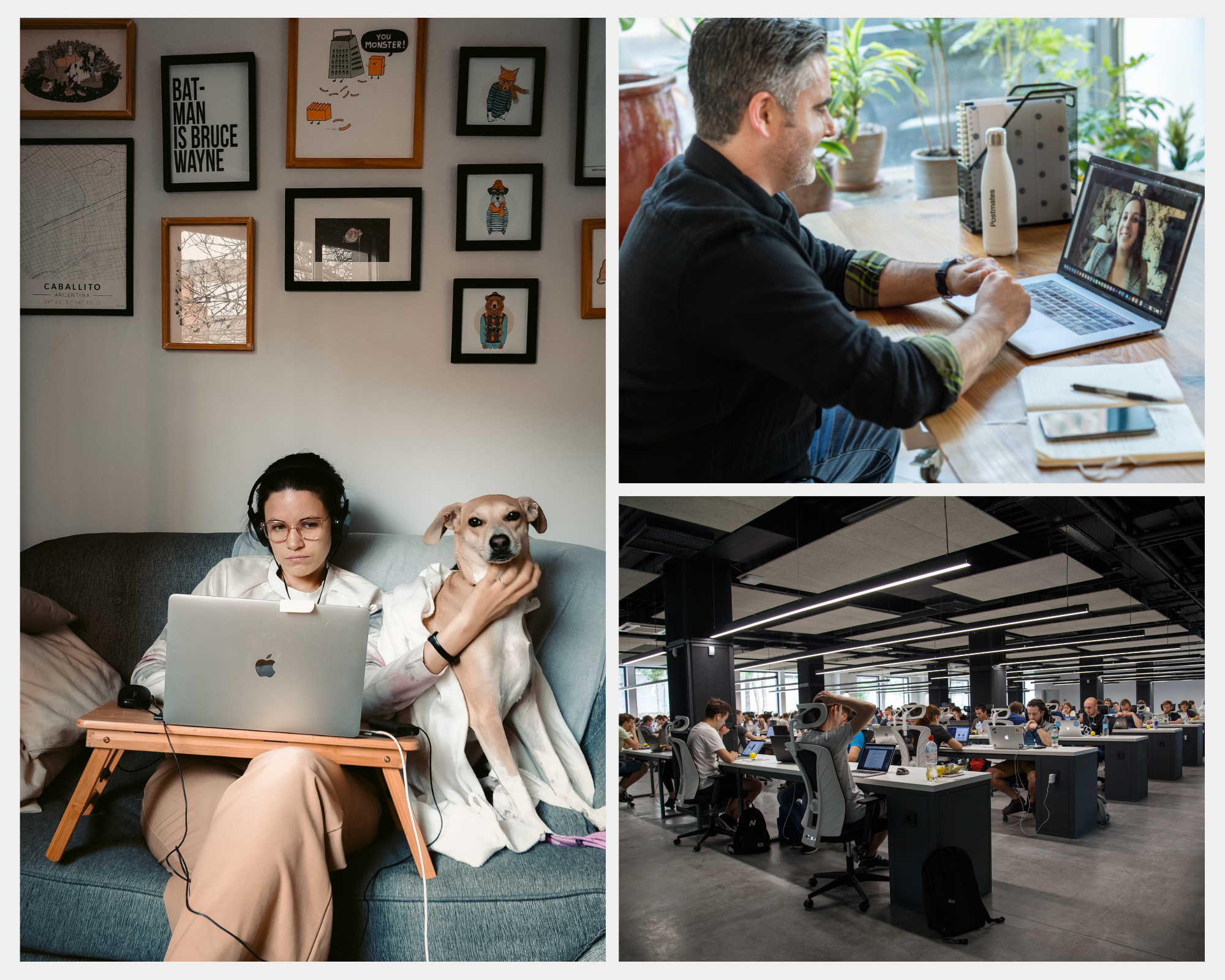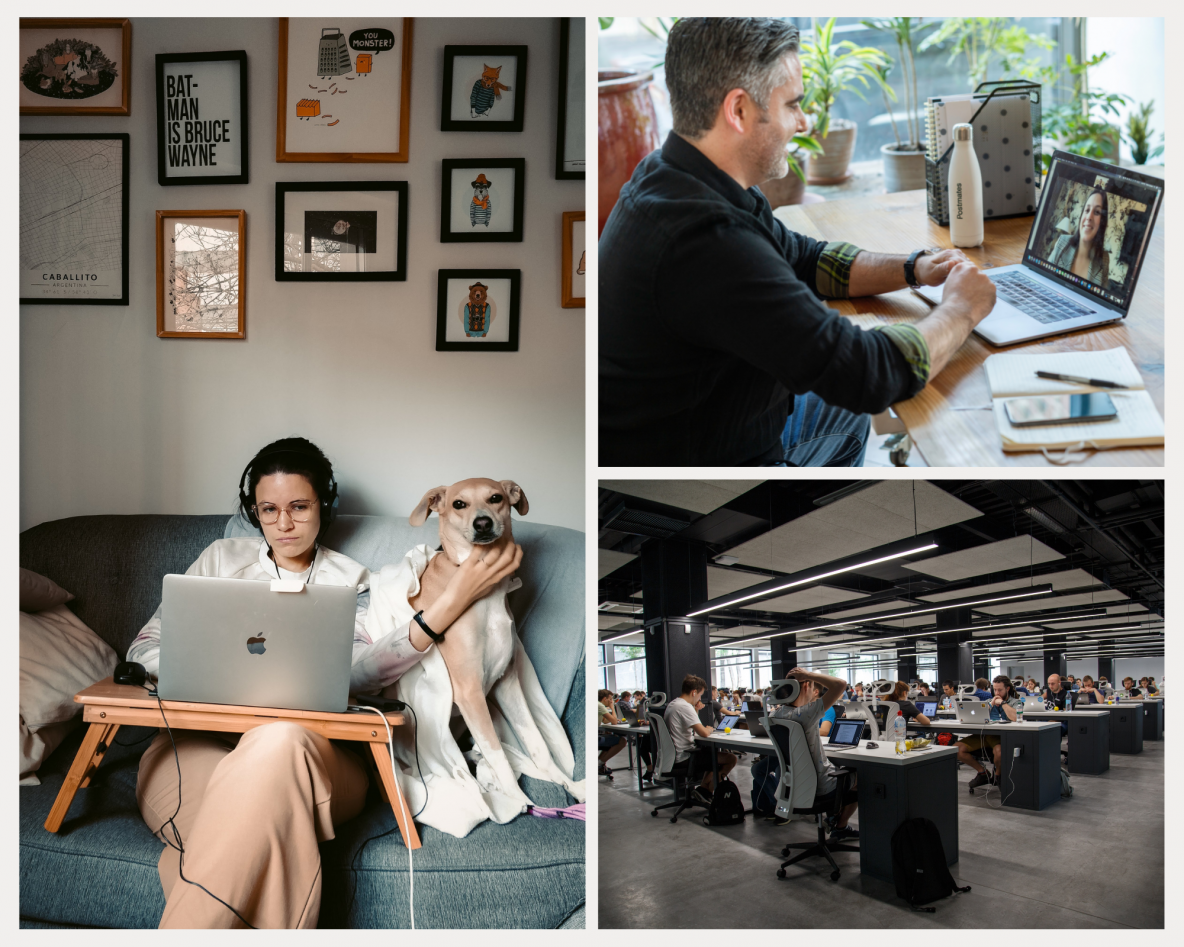
Virtual meetings, Zoom and Teams have all been incredible tools in helping the wheels of industry keep turning. And they undoubtedly save time in travelling to meetings. Imagine if we didn’t have technology like this to get us through the pandemic. But virtual meetings are also NOT a permanent alternative to meeting in person. So what’s wrong with shifting all meetings to online?
Human interaction is vital to business and to us all. By only seeing your colleagues on screen, you are missing out on those casual conversations, brainstorming ideas and quick feedback. Plus, company culture is getting lost because this needs to constantly evolve and change and that doesn’t happen in a solely virtual environment.
The culture of a company is that essence that makes us all keep doing what we’re doing. If there comes a point when we don’t feel that we have added value in the tasks we have completed, then we’re not creating value for our company, and we’ve lost sight of the company culture.
Of course, this isn’t the case for every business. Some have weathered the Covid storm and kept their culture alive. But they are probably existing off a strong pre-pandemic level of culture awareness and this will eventually erode without the reintroduction of human interaction.
Covid has presented us with a new way of working that offers great opportunities for innovation. While hybrid working has been around for a while, it hasn’t ever been as widely accepted or adopted as right now. But it’s how it is adopted across teams that is crucial to its success.
The idea behind hybrid working is that employees work some days in the office and some days at home. This means fewer staff in the physical office and still allows flexibility on the working from home days.
Hybrid working is only really effective if the right people are in the office at the same time. Managers and business leaders need to work out who would benefit from spending time together and set those days, so everyone knows what’s expected of them and when. The days need to be productive and worthy of being in a physical environment.
This isn’t an easy thing to work out. Employees return to work concerns need to be considered, as well as their potential change of circumstance since lockdown – school or carer routines that have come into play during the lockdown periods. Coaching can be beneficial to managers and employees by either working out the best way to reintegrate teams and individuals, or by helping staff overcome return to work concerns. But hybrid working does offer a good compromise for both staff and businesses who can equally benefit from in-house and remote working.
Business leaders and managers need to learn new ways of helping their staff. Again, coaching is an excellent way to manage this by looking at different options, talking through potential problems and reaching workable solutions.
Without regular personal interaction it becomes very difficult for managers to give spontaneous or informal feedback. Instead, this has to be scheduled in which brings a degree of formality. It is also less easy to inspire teams in a remote environment. But if everyone is committed to the company culture and purpose, they are more likely to remain motivated. Those working from home remain driven because they know why they’re doing what they do, and they appreciate it has value. And that keeps the inspiration going.
It’s so important for managers to care about their staff and treat them as individuals. This needs to happen business-wide, not just for the executives and board. The people are the most important asset of any company and it is short sighted to overlook their wellbeing. Hybrid working allows managers to personally interact and check in with staff – and make sure the hybrid system is working for them.
The boundaries of work have shifted since the migration to home working, with many people’s work days extending into the evenings, or starting very early in the morning – this can work in terms of flexibility with family life, but there is a danger that people are working longer hours. Reports of people like Elon Musk working 120-hour weeks isn’t helpful because that’s not sustainable and likely to be counterproductive. Instead focus should be on how we work, not how much work we do.
There will be some staff who have revelled in working from home and feel very reluctant to return to the workplace regardless of how hybrid. Employers must be careful not to impose on their rights as well, such as requesting everyone is double vaccinated, or all must come back to work all day every day. Flexibility is key here, and knowing your staff well. They may benefit from some coaching in how to manage the transition back to work and also to increase their engagement with the company and culture. Managers can also be coached in how to effectively manage hybrid and remote teams.
If constructed with thought and care, hybrid working could quickly become the new normal and a much kinder way to work. If you or your teams would like help with transitioning back to the workplace, let me know. We can have an informal chat to find out what you need help with, and we can talk over some ideas. Give me a call on 07808 584732 or email me. You have nothing to lose but much to gain by making your workplace happier and healthier.
I look forward to hearing from you.
You can watch the M&M Show in full here.

